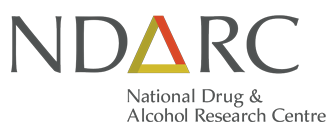
This project measures the safety and effectiveness of quit smoking medicines, nicotine replacement therapy (NRT), and varenicline, during pregnancy. As the project progresses, we also measure these outcomes for bupropion, another quit smoking aid. We use routinely collected data from NSW, New Zealand, Norway, and Sweden to create a cohort of over 400,000 women who smoked during pregnancy and their children. Women who used NRT, varenicline or bupropion during pregnancy will be compared to women who smoked but did not use these medicines in relation to quitting smoking and a range of adverse outcomes, including rare but severe events including congenital anomalies and stillbirth, and long-term child neurodevelopment.
Project Collaborators External
- Associate Professor Helga Zoega, Medicines Intelligence Research Program, School of Population Health, UNSW Sydney; Centre of Public Health Sciences, University of Iceland, Iceland.
- Dr Kari Furu, Norwegian Institute for Public Health, Norway
- Dr Jacqueline M Cohen, Norwegian Institute for Public Health, Norway
- Professor Lianne Parkin, University of Otago, New Zealand
- Dr Sarah Donald, University of Otago, New Zealand Professor Sallie Pearson, Medicines Intelligence Research Program, School of Population Health, UNSW Sydney
- Professor Nick Zwar, Bond University, Queensland, Australia
- Dr Carolyn Cesta, Karolinska Institutet, Stockholm, Sweden
- Dr Johan Reutfors, Karolinska Institutet, Stockholm, Sweden
Smoking during pregnancy is the largest preventable cause of adverse birth outcomes. The risk of these harms can be reduced substantially if mothers cease smoking in the first 20 weeks of pregnancy, but this is currently only achieved in 25% of cases. It is therefore vital to identify smoking cessation treatments that are effective and safe to use during pregnancy.
The project aims to determine the effectiveness and safety of NRT, varenicline and bupropion during pregnancy.
Design and Method
This is a cohort study based on linked administrative data from NSW, New Zealand and the Nordic countries
Progress/Update
So far, we have quantified the use of NRT, varenicline and bupropion during pregnancy and including specifically in the first trimester. We have also assessed the risk of major congenital malformations following maternal use of these medicines in the first trimester. Additional analyses are ongoing to evaluate their effectiveness and other maternal and child outcomes
Peer-reviewed publications:
- Smoking Cessation Pharmacotherapy Use in Pregnancy
- Risk of Major Congenital Malformations Following Prenatal Exposure to Smoking Cessation Medicines
Benefits
The findings of this project will provide an evidence-base for clinical guidelines and consumer medicines information, thereby driving improvements in the care and outcomes of women smoking during pregnancy and their children.
- Overview
- News
- Our team
- References




